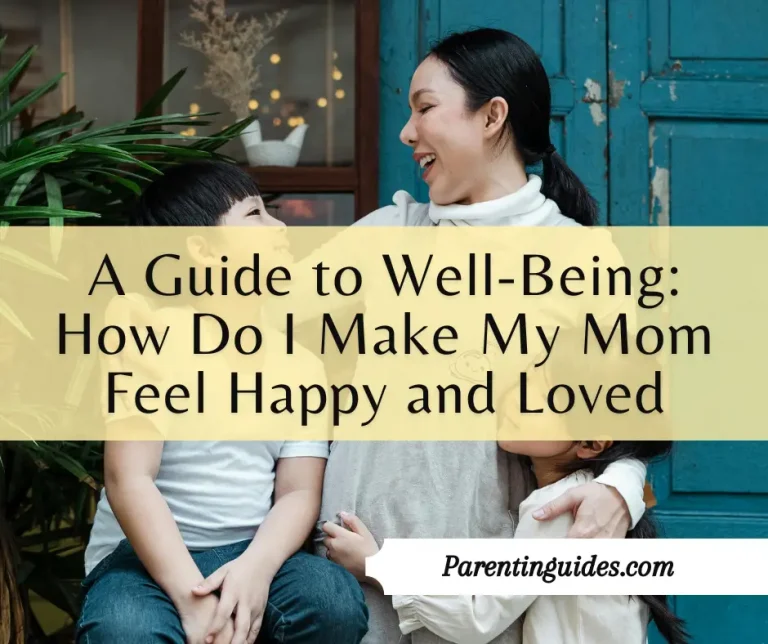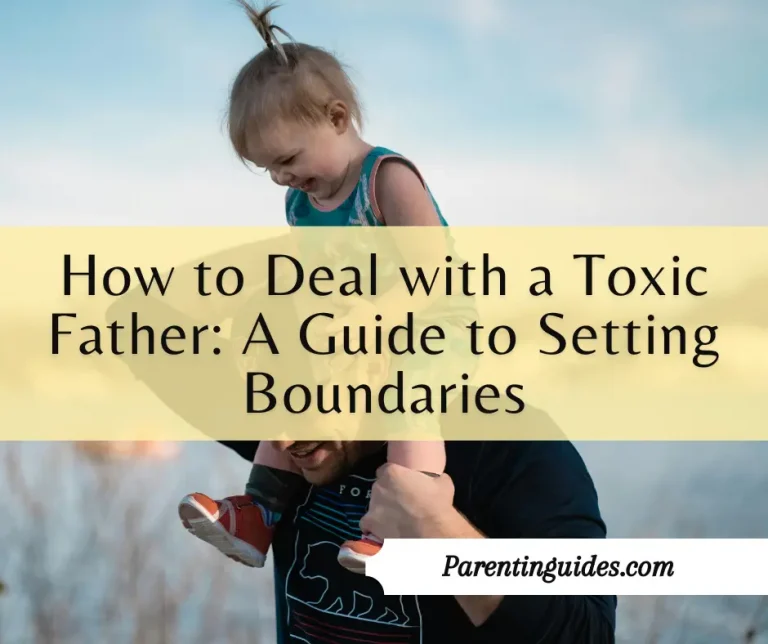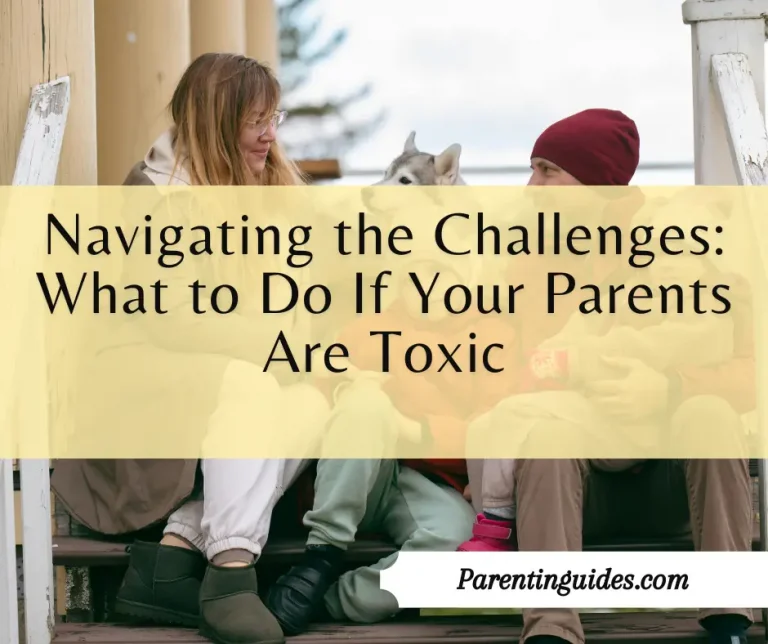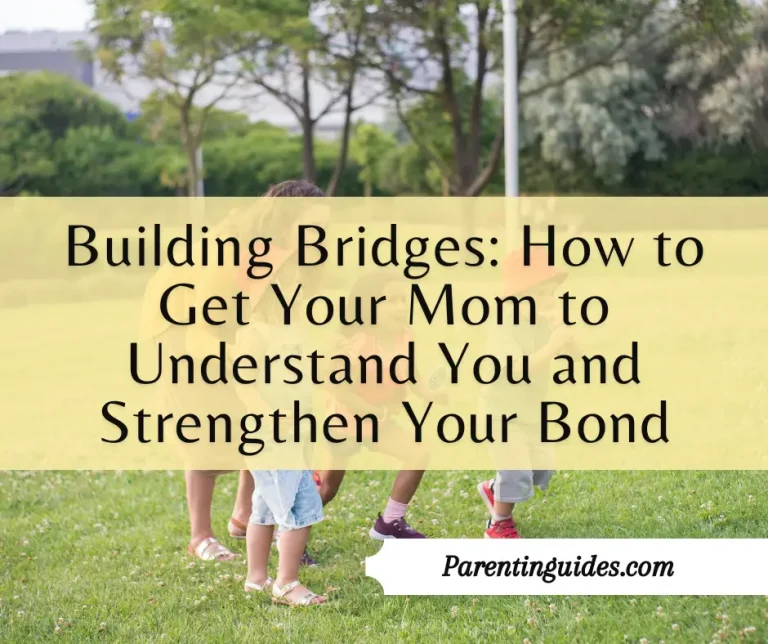As a parent, one of the most challenging aspects of life can be dealing with toxic parents. These are parents who exhibit harmful behaviors, which can have a lasting impact on their adult children. It’s important to recognize and address these issues for personal growth and well-being. Therefore, it is essential to think clearly about how to deal with toxic parents as adults.
Toxic parents, as defined by psychologists, are those who consistently exhibit harmful behaviors toward their children. These behaviors can include emotional manipulation, verbal abuse, neglect, or even physical abuse. The impact of toxic parenting can be profound and long-lasting, affecting various aspects of an adult child’s life.
When it comes to how to deal with toxic parents as adults, it has many effects. The effects of toxic parenting can manifest in various ways in adult children. They may struggle with low self-esteem, have difficulty forming healthy relationships, and experience ongoing emotional challenges. Recognizing these patterns and behaviors is the first step toward healing and recovery.
In this article, we will discuss strategies for how to deal with toxic parents as adults. These strategies include setting boundaries, seeking support, coping strategies, and ways to move forward towards a positive future. By understanding and implementing these strategies, adult children can begin to heal from the impact of toxic parenting and create a healthier future for themselves.
Understanding Toxic Parenting in “how to deal with toxic parents as adults”
How to deal with toxic parents as adults is a common problem within modern society. As a mother who has dealt with toxic parents, I understand the challenges firsthand. Toxic parenting comes in various forms. Here is each with its own set of damaging effects on adult children.
Types of Toxic Parenting
When considering how to deal with toxic parents as adults, here are some important types of toxic parenting.
- Authoritarian parenting: This type of parenting is characterized by strict rules, harsh discipline, and little to no room for negotiation. Children raised by authoritarian parents often struggle with feelings of resentment and rebellion.
- Narcissistic parenting: Narcissistic parents are self-absorbed and often prioritize their own needs over their children’s. They may manipulate their children to meet their own emotional needs, leading to feelings of neglect and low self-worth in the children.
- Neglectful parenting: Neglectful parents fail to provide the emotional, physical, and psychological care their children need. This can lead to a range of issues, including feelings of abandonment and an inability to form healthy relationships.
Impact on Adult Children
When considering how to deal with toxic parents as adults, there are some impacts on adult children as follows.
- Emotional effects: Adult children of toxic parents often struggle with a range of emotions, including anger, sadness, and confusion. These emotions can be overwhelming and difficult to navigate without proper support.
- Behavioral patterns: Toxic parenting can lead to the development of negative behavioral patterns in adult children. These patterns may include people-pleasing, perfectionism, or even engaging in toxic behavior themselves.
- Relationship challenges: Adult children of toxic parents often struggle to form and maintain healthy relationships. They may have difficulty trusting others or may replicate the toxic patterns they experienced in their relationships.
Recognizing Patterns and Behaviors
If you are considering how to deal with toxic parents as adults, it is important to identify the behaviors and patterns of children.
- Identifying toxic behaviors: Adult children need to recognize the toxic behaviors exhibited by their parents. This can include manipulation, gaslighting, or emotional abuse.
- Understanding the cycle of abuse: Many adult children of toxic parents find themselves caught in a cycle of abuse, repeating the same patterns of behavior they experienced in childhood. Recognizing this cycle is the first step towards breaking free from it.
- Acknowledging the impact on self-perception: Toxic parenting can have a profound impact on how adult children see themselves. They may struggle with feelings of inadequacy or worthlessness, stemming from the negative messages they received from their parents.
By understanding the different types of toxic parenting and their impact on adult children, individuals can begin to recognize and address these issues in their own lives. It’s important to seek support from trusted friends, family members, or mental health professionals to navigate these challenges effectively. As a result, you will get the chance to solve the problem of “how to deal with toxic parents as adults”.

Recognizing the Signs of Toxic Parents
As a mother who has faced toxic parenting, I have always considered how to deal with toxic parents as adults. Here, recognizing the signs is crucial for healing and growth. Understanding these signs can help adult children navigate their relationships with toxic parents.
Behavioral Patterns
- Manipulation tactics: Toxic parents often use manipulation to control their children. This can include guilt-tripping, playing favorites, or using threats to get their way.
- Gaslighting: Gaslighting is a form of psychological manipulation where toxic parents make their children doubt their reality. This can lead to confusion and a loss of self-confidence.
- Emotional abuse: Emotional abuse can take many forms, including verbal attacks, insults, and belittling. This type of abuse can have a profound impact on a child’s self-esteem and mental well-being. This is a must-considered behavioral pattern when it comes to how to deal with toxic parents as adults.
Effects on Self-Esteem
There are some effects on self-esteem when it comes to how to deal with toxic parents as adults.
- Low self-worth: Children of toxic parents often struggle with feelings of low self-worth. They may believe they are unworthy of love and respect, leading to a lack of confidence in themselves.
- Self-doubt: Constant criticism and invalidation from toxic parents can lead to self-doubt in adult children. They may constantly second-guess themselves and their abilities.
- Fear of failure: Toxic parenting can instill a fear of failure in adult children. They may be afraid to take risks or pursue their dreams due to the fear of not meeting their parents’ expectations.
Impact on Relationships
- Difficulty in forming healthy relationships: Adult children of toxic parents may struggle to form healthy relationships. They may have trust issues and fear being hurt by others.
- Replicating patterns in other relationships: Without intervention, adult children may replicate the toxic patterns they experienced in their own relationships. This can perpetuate the cycle of abuse.
- Struggles with trust and intimacy: Trust and intimacy can be challenging for adult children of toxic parents. They may have a fear of being vulnerable with others, leading to difficulties in forming deep connections.
Recognizing these signs is the first step towards healing from the effects of toxic parenting. Adult children need to seek support from friends, family, or mental health professionals. It is simply to navigate these challenges and build healthy relationships. As a result, they will help you to solve “how to deal with toxic parents as adults”.

Healing and Recovery from Toxic Parenting
As a mother, dealing with toxic parents as an adult can be incredibly challenging. It’s important to take steps to heal and recover from the impact of toxic parenting. Here are some strategies that can help to solve how to deal with toxic parents as adults.
Setting Boundaries
One of the first steps in healing from how to deal with toxic parents as adults is to identify and enforce boundaries. This means recognizing what behaviors are acceptable and unacceptable from your parents. For example, if your parents constantly criticize you or belittle you, you may decide that this behavior is unacceptable and set a boundary that you will not tolerate.
Once you have identified your boundaries, it’s important to communicate them to your parents. This can be done calmly and assertively, making it clear what behaviors you will not tolerate. For example, you might say, “I will not engage in conversations that are hurtful or disrespectful.”
Setting boundaries with toxic parents can be met with resistance. They may try to guilt-trip you or manipulate you into changing your boundaries. It’s important to stay firm and assertive, reminding yourself that your boundaries are valid and necessary for your well-being.
Seeking Support
Therapy can be incredibly helpful in healing from how to deal with toxic parents as adults. A therapist can provide you with a safe space to explore your feelings and experiences, as well as teach you coping mechanisms for dealing with difficult emotions.
Support groups can also be beneficial, as they allow you to connect with others who have experienced similar struggles. Sharing your experiences with others who understand can be incredibly validating and healing.
In addition to professional support, it’s important to build a support network of friends and family members who are understanding and supportive of your journey. Surrounding yourself with positive influences can help you feel more confident in your healing process.
Coping Strategies
Healing from toxic parenting requires resilience. This means learning to bounce back from setbacks and not letting your past define you. Building resilience can be done through therapy, self-reflection, and practicing self-care.
Dealing with toxic parents can cause a great deal of stress and anxiety. It’s important to find healthy ways to manage these emotions. Simply, they are such as through exercise, mindfulness, or hobbies that bring you joy.
Finally, practicing self-compassion is key in healing from how to deal with toxic parents as adults. This means being kind and understanding to yourself, and recognizing that you are worthy of love and respect, regardless of how your parents may have treated you.
In conclusion, healing from toxic parents as an adult is a challenging but necessary process for personal growth and well-being. By setting boundaries, seeking support, and practicing coping strategies, you can begin to heal from the past and create a more positive future for yourself. They will guide you on how to deal with toxic parents as adults.
Moving Forward for Building a Positive Future
As a mother who has experienced toxic parenting, moving forward and building a positive future can seem daunting. However, with the right strategies, it is possible to break free from the past and create a fulfilling life. Here are some ways to do so when considering how to deal with toxic parents as adults.
Self-Reflection and Growth
One of the first steps in moving forward is to understand the patterns of behavior that have been ingrained in you as a result of toxic parenting. This may involve reflecting on your upbringing and recognizing how it has influenced your thoughts, feelings, and actions.
Self-compassion is crucial in healing from toxic parenting. It involves being kind and understanding to yourself, especially when faced with challenges or setbacks. This can help you break free from negative self-talk and develop a more positive self-image.
Setting goals for personal development can help you focus on the future and work towards becoming the person you want to be. These goals can be small, achievable steps that help you grow and improve over time. They will simply help you to solve how to deal with toxic parents as adults.
Creating Healthy Relationships
Learning to trust others can be difficult after experiencing toxic parenting. However, building trust in healthy relationships can help you heal and grow. This may involve taking small steps to open up to others and being vulnerable.
Empathy is key to forming healthy relationships. It involves understanding and sharing the feelings of others, which can help you connect on a deeper level. Developing empathy can also help you break the cycle of toxic behavior in your relationships.
Nurturing positive connections with others is essential for your well-being. This may involve surrounding yourself with supportive and understanding people who uplift you and make you feel valued. As a result, you will easily get solutions on how to deal with toxic parents as adults.
Forgiveness and Closure
Forgiveness is a powerful tool when it comes to how to deal with toxic parents as adults. It involves releasing anger and resentment towards your parents and moving towards a place of peace and acceptance. This can be a challenging process but can ultimately bring you a sense of freedom.
Finding closure without reconciliation with your parents is possible. This may involve accepting that reconciliation may never happen and finding peace in knowing that you have done everything you can to heal and move forward.
Moving forward with compassion towards yourself and others is key to building a positive future. This involves letting go of blame and judgment and embracing a mindset of kindness and understanding.
In conclusion, moving forward from toxic parenting is a journey that requires self-reflection, growth, and compassion. By understanding your past, cultivating healthy relationships, and finding forgiveness and closure. So, you can create a positive future for yourself and break free from the cycle of toxic parenting. As a result, you will automatically learn how to deal with toxic parents as adults.
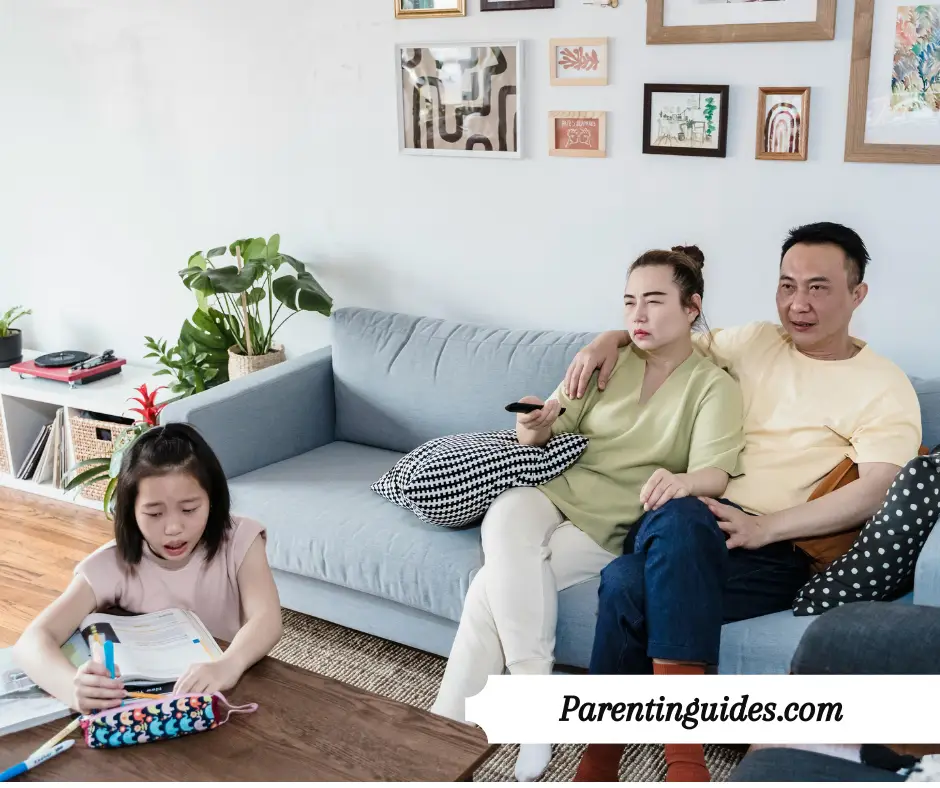
Maintaining Boundaries and Self-Care
As a mother who has experienced toxic parenting, maintaining boundaries and practicing self-care is crucial for your well-being. Here are some strategies that can help you protect your emotional well-being and establish healthy relationships. They will also help you to solve how to deal with toxic parents as adults.
Importance of Boundaries
Setting boundaries is essential for protecting your emotional well-being. It allows you to create a safe space for yourself where you are not exposed to toxic behavior from others.
Boundaries are also important for establishing healthy relationships. They help you communicate your needs and expectations to others, which can lead to more fulfilling and respectful relationships.
Setting boundaries helps you set limits on toxic behavior from others. It allows you to identify what is acceptable and unacceptable in your relationships, and to enforce those boundaries when necessary. Therefore, when it comes to how to deal with toxic parents as adults, this is essential.
Practicing Self-Care
Taking care of your physical health is an important part of self-care. This includes getting regular exercise, eating a balanced diet, and getting enough sleep. These activities can help you feel more energized and resilient in the face of challenges.
Emotional self-care involves taking care of your mental and emotional well-being. This can include practicing mindfulness, meditation, or other relaxation techniques to help you manage stress and anxiety.
Spending time with supportive people is also important for your well-being. They will simply help you to solve how to deal with toxic parents as adults. Surrounding yourself with friends and family who uplift you and make you feel valued can help you feel more supported and less alone.
Handling Guilt and Obligation
Guilt and obligation are common feelings for adult children of toxic parents. It’s important to recognize when these feelings are misplaced and to remind yourself that you have the right to prioritize your well-being.
Releasing feelings of obligation towards your parents can be freeing. It’s important to remember that you are not responsible for their happiness or well-being and that it’s okay to prioritize yourself.
Setting priorities for self-care can help you maintain your boundaries and protect your well-being. This may involve saying no to things that drain you emotionally or physically and saying yes to activities that nourish your mind, body, and soul.
In conclusion, maintaining boundaries and practicing self-care is essential for healing from how to deal with toxic parents as adults. By protecting your emotional well-being, establishing healthy relationships, and prioritizing self-care, you can create a happier and more fulfilling life for yourself and your family.
Conclusion
Dealing with toxic parents as adults can be incredibly challenging. These are parents who exhibit harmful behaviors that can have a lasting impact on their adult children. It’s crucial to recognize and address these issues for personal growth and well-being. Toxic parents, as defined by psychologists, consistently exhibit harmful behaviors towards their children, including emotional manipulation, verbal abuse, neglect, or even physical abuse.
When it comes to how to deal with toxic parents as adults, It has many impacts. The impact of toxic parenting can be profound and long-lasting, affecting various aspects of an adult child’s life. It can manifest in low self-esteem, difficulty forming healthy relationships, and ongoing emotional challenges. Recognizing these patterns and behaviors is the first step toward healing and recovery. Setting boundaries is essential in healing from toxic parenting. This involves identifying what behaviors are acceptable and unacceptable from your parents and communicating these boundaries effectively.
Seeking support is also crucial in how to deal with toxic parents as adults. Therapy and counseling can provide a safe space to explore your feelings and experiences, while support groups can offer validation and understanding from others who have experienced similar struggles. Building a support network of friends and family who are understanding and supportive of your journey is also important.
Coping strategies, such as developing resilience, managing stress and anxiety, and practicing self-compassion, can help you navigate the challenges of dealing with toxic parents. Moving forward toward a positive future involves self-reflection and growth, creating healthy relationships, and finding forgiveness and closure. It’s a journey that requires self-compassion, understanding, and perseverance.
Maintaining boundaries and practicing self-care are essential for your well-being. Setting limits on toxic behavior and prioritizing self-care activities can help protect your emotional well-being. It’s important to remember that healing from toxic parents is a process, and it’s okay to seek help and support along the way. By taking steps to heal and move forward, you can solve how to deal with toxic parents as adults. As a result, you will get the chance to create a more positive future for yourself and your family.

